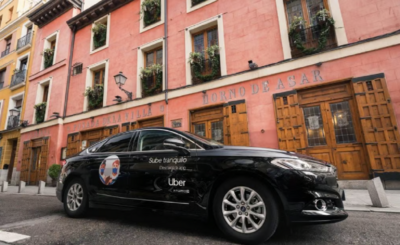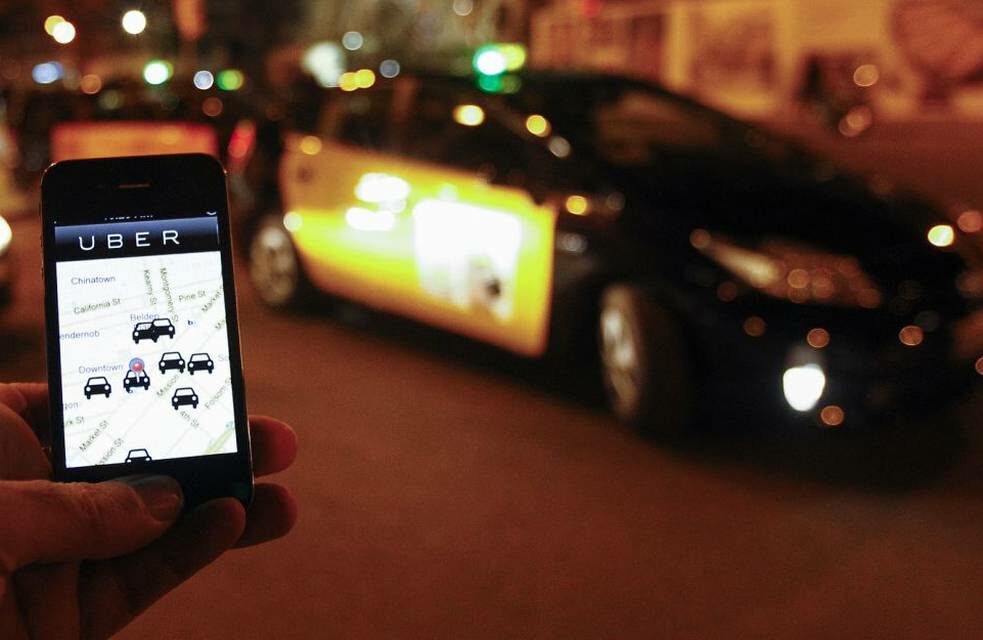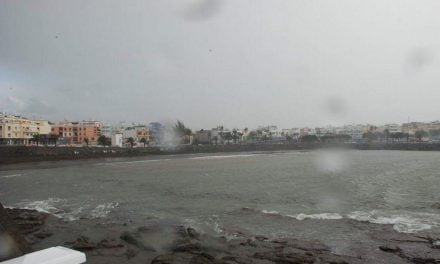Canary Islands, Spain – The ride-hailing company Uber officially launched its services in the Canary Islands this Thursday. The vehicle rental service with drivers, which is already present in five other regions of Spain, has started operating in the archipelago. However, for now, the service will only be available in the municipalities of Granadilla de Abona, Arona, Adeje, and Guía de Isora on Tenerife. The company plans to expand its operations to the rest of the island and eventually arrive on Gran Canaria. Uber is confident about the success it can achieve on the islands, as last year alone, 70,000 people attempted to book a service through the Uber app from the two capital islands.
The service has started in four municipalities, as well as from Tenerife Sur Airport, through two formats: one provided by taxis and another premium service with high-end vehicles. Uber already has 30 cars for the premium service, while for the taxi service, the company encourages taxi drivers to start working with their application. The fares will continue to be calculated based on the taximeter, but those who join Uber will also have access to additional incentives.
Felipe Fernández, the General Manager of Uber in Spain and Portugal, explained that the decision to choose the south of Tenerife for their initial launch on the Canary Islands was based on several factors, including the increase in the number of visitors observed earlier this year and the forecast of further growth this season. In addition, there was a higher presence of potential customers compared to the other capital island, as 50,000 people attempted to book a service from Tenerife last year. “Now we will analyse the evolution of the number of operations, drivers, taxis, and user interest before expanding to the entire island and Gran Canaria,” detailed Fernández.
Regarding the choice of the premium service, called Uber Black, Fernández explained that the regulations in the archipelago facilitate the granting of licenses associated with high-end vehicles that exceed €50,000.
The Transport Regulation Law of the Canary Islands establishes a limitation on VTC (Private Hire Vehicle) licenses, which is the license any private vehicle must apply for to operate through platforms like Uber. According to this regulation, there can be only one VTC license for every 30 taxis. Fernández acknowledged that this ratio complicates Uber’s expansion in the Canary Islands but emphasised that the company will always operate “within the legal framework.”
Political concerns have been raised regarding this limitation. However, a recent ruling by the European Court of Justice determined that the Spanish restriction on licenses for vehicles with drivers is contrary to community law. Despite this, the Canary Islands’ Ministry of Public Works, Transport, and Housing, which is responsible for land transport, has informed the local councils that the quota remains in effect in the archipelago, as this restriction is not solely based on economic reasons but also on the need to regulate transportation in an insular and ultra-peripheral territory.
Yesterday, the General Manager of Uber in Spain and Portugal stated that the company is closely following the application of this ruling in the country but denied that Uber’s arrival in the Canary Islands was prompted by this development. “We have been working on it for months,” he asserted.
Nevertheless, Pedro Martín, the acting president of the Tenerife Island Cabildo, expressed concerns and emphasised the need to take the necessary measures to ensure regulation of VTC licenses to prevent a massive influx onto the islands. Currently, according to the existing ratio, only 85 licenses are authorised on the island, while 2,350 license applications have already been denied due to the limitation.
With the launch, Uber maintains its commitment to collaboration with the taxi sector. The service was first introduced in Madrid in 2019, followed by Málaga, Barcelona, and Valencia in 2021, and Mallorca in 2023. Tenerife now becomes the sixth territory to have this service.
 In Spain, a total of 4,000 taxis already work with Uber, with 3,000 of them in Madrid, where they earn twice as much compared to street-hailed services, according to the company.
In Spain, a total of 4,000 taxis already work with Uber, with 3,000 of them in Madrid, where they earn twice as much compared to street-hailed services, according to the company.
Taxi drivers who register to work with the app will enjoy a 0% service commission until August 31, 2023, as well as €300 for each referral and €150 upon completing the first 25 trips. Additionally, during the first four weeks, drivers will receive €300 per week if they complete 50 trips each week.
Felipe Fernández Aramburu, the General Manager for Spain and Portugal, stated that with this launch, they continue to “bet” on Spain and the taxi sector.
“We want to work hand in hand with the region’s taxi drivers, the local tourism sector, and public administrations to improve mobility on Tenerife,” he added.
Coinciding with the launch, Uber has entered into a strategic agreement with ‘OK Mobility,’ through which both companies will collaborate to offer users more mobility options during their stay in Tenerife.
Through this integration, the two companies will provide special discounts to their respective customers, allowing them to combine car rentals from ‘OK Mobility’ with on-demand services through the Uber app.
OK MOBILITY, UBER’S STRATEGIC MOBILITY PARTNER
OK Mobility CEO, Othman Ktiri, welcomed the agreement, saying: “OK Mobility is committed to making it easier for people to get around our island and we are delighted to join forces with Uber to continue to cover the needs of residents and tourists. I know that this is a service that the people of Tenerife have been missing and to be able to participate in improving the wellbeing of society makes me very happy”.
HOW UBER WORKS
 To use the service on Tenerife, users only have to download the application, register and indicate a payment method,
To use the service on Tenerife, users only have to download the application, register and indicate a payment method,
register and indicate a payment method. Once logged in, the user must indicate the destination and the
application will show the fixed price of the journey. When a driver accepts your request, the app will show you the waiting time until pick-up as well as the vehicle and driver details.
The price of Uber Black is determined as follows:
● Uber Black
○ Per minute: €0.18 low demand / €0.20 rush hour
○ Per kilometre: €1.70 low demand / €2.00 rush hour
○ Base price: €8 low demand/ €10 rush hour
○ Minimum fare: €16 low demand / €23 rush hour
Taxis ordered through Uber will be charged at the meter rate stipulated by the local authorities.
To communicate with the driver prior to the pick-up, the user can use the in-app chat or call by phone, in-app chat or call by phone completely anonymously. During the ride, the passenger can share their location and estimated time of arrival with family or friends. If the passenger is travelling with a companion, he/she can automatically split the fare with his/her companions.
Upon arrival at the destination, the journey will be completed without the need for any additional steps. The user will then immediately receive a receipt for their journey by email and can download their invoice from the Uber website. Both users and drivers can rate each other, which is very useful information for ensuring the quality of the service.













